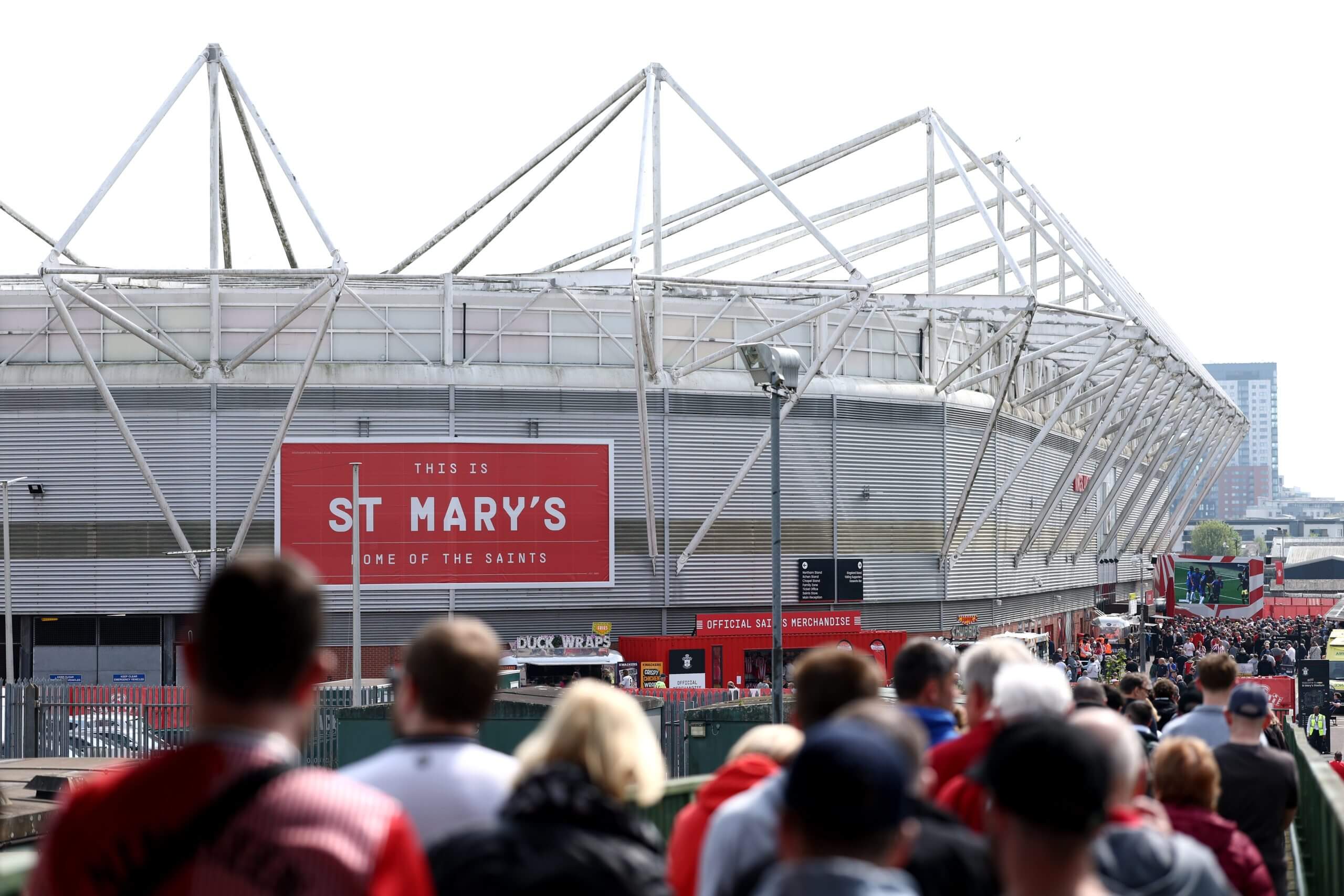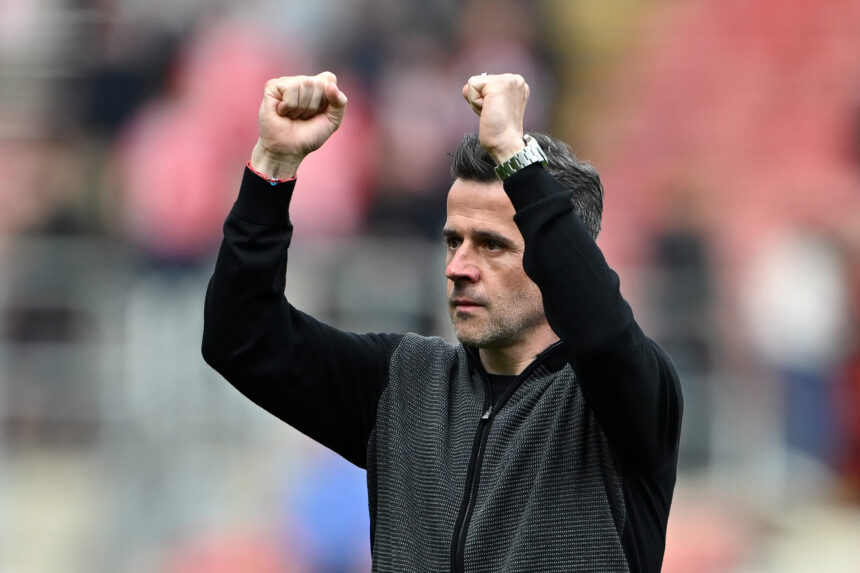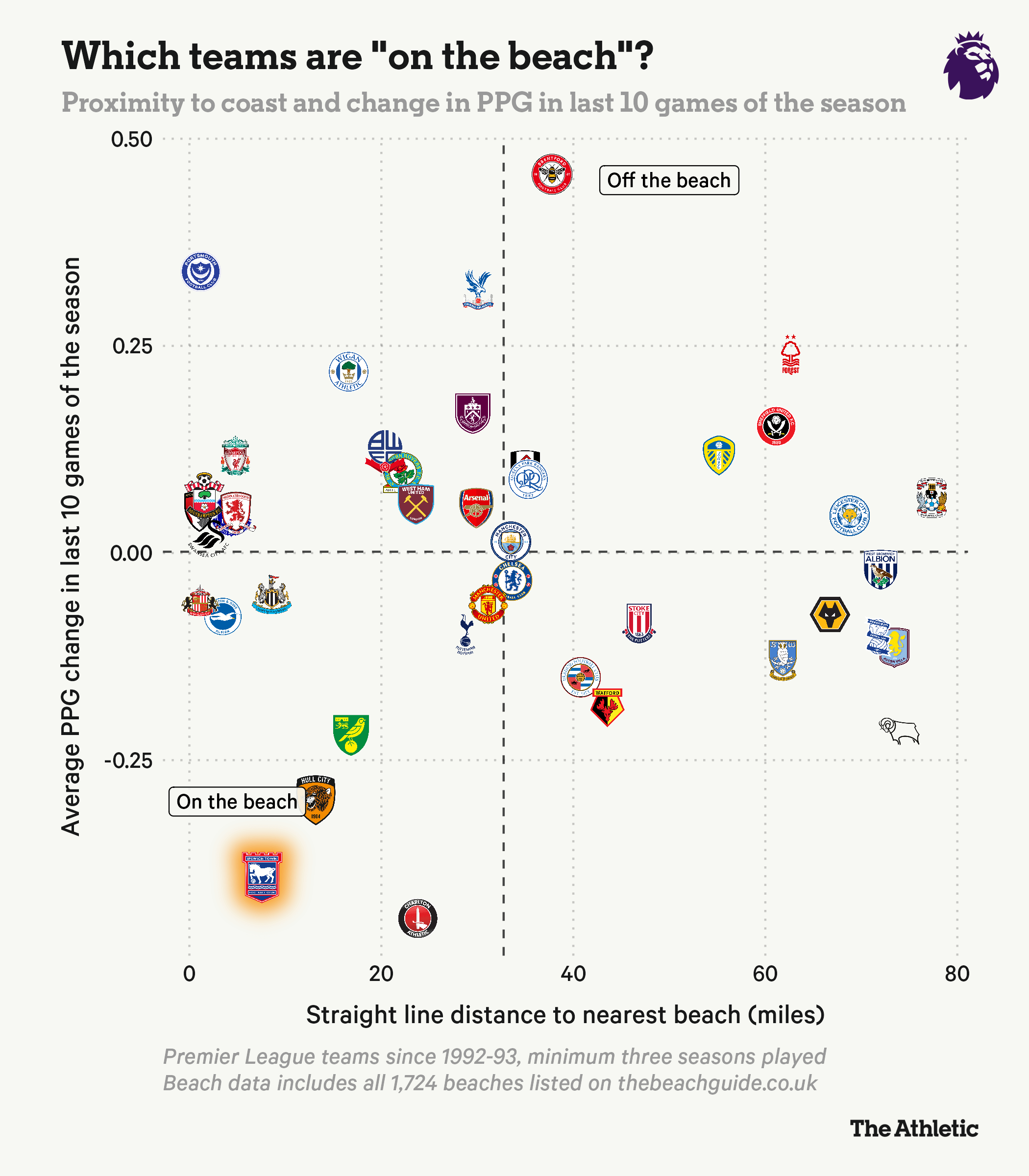It feels unlikely that many neutrals had circled Southampton vs Fulham as their match of the weekend.
For the home side, it was another episode in their quest to escape the clutches of the 2007-08 Derby County side and avoid matching their record-low of 11 Premier League points. For the visitors, it was a chance to maintain their hopes of qualifying for Europe, although a first-half display that Fulham head coach Marco Silva called “completely below the standards” did not help their cause.
Advertisement
Under normal circumstances, a late-April match between a mid-table side and a relegated team, set in a coastal city on a warm (if slightly overcast) day, would tick every box for the classic low-stakes, end-of-season fixture known in football parlance as an “on-the-beach” game.
Yet with the possibility — however remote and convoluted — of as many as 11 teams qualifying for European football, Premier League sun loungers are far less occupied this year. Fulham’s 2-1 win moves them up to eighth, keeping alive their dreams of a first European campaign since the 2011-12 season.
Being opposed to figurative beach visits is hardwired into the DNA of Premier League managers. Silva himself is a seasoned denier of coastal complacency. Last season, before facing Manchester City in a title-defining clash that meant little to Fulham, his players were spotted flying kites — an unmistakably beach-adjacent activity — during training.
When asked about it in his pre-match press conference, Silva, quite fairly, dismissed its relevance in strong terms. Even in an era when the Premier League is an increasingly intense, high-performance, low-margin-of-error sport, an activity requiring the mental dexterity of a toddler is unlikely to derail a team’s focus.
Silva’s Fulham are still flying high after beating Southampton (Dan Mullan/Getty Images)
Fulham’s first goal against Southampton on Saturday came when Alex Iwobi set up substitute Emile Smith Rowe — notably, the only two Fulham players wearing their socks low — proving that proximity to beach attire does not correlate with a drop in performance. Ryan Sessegnon’s stoppage-time winner was assisted by a cross from another substitute, Adama Traore, whose rapid dribbling ability is a particularly valuable weapon against deep-lying defences where space is at a premium.
‘On the beach’ denial is typically the preserve of mid-table managers. While the phrase evokes images of leisurely freedom, it actually conveys a sense of stasis: those teams marooned between the glamour of European competition and the doom of relegation. Sean Dyche, Roy Hodgson, Ralph Hasenhuttl, the league’s self-declared “best coach” John Carver, and Thomas Frank have all rejected accusations that their sides lost focus once the stakes had reduced.
Advertisement
However, resistance to beach imagery is not universal. Before Queens Park Rangers’ May 2015 match against Manchester City, when QPR required a victory to stave off relegation, Bobby Zamora attempted to invoke the idea, saying, “We’d like to think they’re going to have their flip-flops on.” QPR duly lost 6-0.
Darren Bent benefited from seaside paraphernalia when his shot deflected in off a beach ball during Sunderland’s 1-0 victory against Liverpool in 2009. Former Tottenham Hotspur boss Jacques Santini was so pro-sand that he cited the broken promise of “a big apartment on the beach” among the reasons for his exit.

Fans head to St Mary’s for Saturday’s game (Dan Istitene/Getty Images)
But by and large, being ‘on the beach’ remains a pejorative label. As big data continues to shed light on football’s most arcane mysteries, The Athletic set out to define what it means — both literally and figuratively.
To gauge who the Premier League’s biggest sun-worshippers are, we looked at ‘on-the-beach’ in both senses. Using the 1,724 beaches listed on the UK Beach Guide, we calculated how close each stadium was to its nearest coastal escape.
On the performance side, we measured how a team’s average points per game (PPG) dropped in the final 10 matches of the season compared to the rest of their campaign.
Looking at the scatter graph below, Ipswich Town tick both on-the-beach criteria, dropping 0.4 more PPG on average in the final stretch of the season, while being geographically close to Felixstowe Beach.
On the other end of the scale are Brentford, a club who, with no beaches in west London, generally finish Premier League seasons strongly. This is an admirable quality of Frank’s side, as they often find themselves in that phantom zone between relegation and European qualification going into the final 10 games, and have nothing but pride on the line.
Advertisement
Southampton fans, meanwhile, will be disappointed to learn that coastal rivals Portsmouth are particularly adept at picking up points late on in a Premier League season, though they haven’t featured in the top flight for 15 years now.
Yet this scientifically unsound method fails to capture the most important aspect of perceived coasting: context. Teams that fall away in title races or lose out in relegation battles are not doing so because they are relaxed or uncaring. Even if players might be dreaming of their upcoming holidays, the ‘merit payments’ available for each position in the Premier League ensure that competitiveness remains high.
This season, the drama has disappointingly fizzled out at both ends of the table. Liverpool have coasted to the title, while the relegated sides have gone down with a whimper. Yet between these extremes, plenty still hangs in the balance, and fewer teams than usual find themselves with nothing left to play for.
As Silva said after the match, it is a “privilege” to be contending for Europe and that “the flame is there”. For now, at least, Fulham’s players can keep their boots tied — and their flip-flops packed away.
(Top photo: Dan Mullan/Getty Images)











